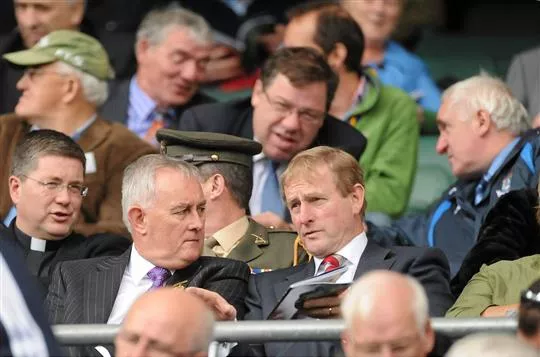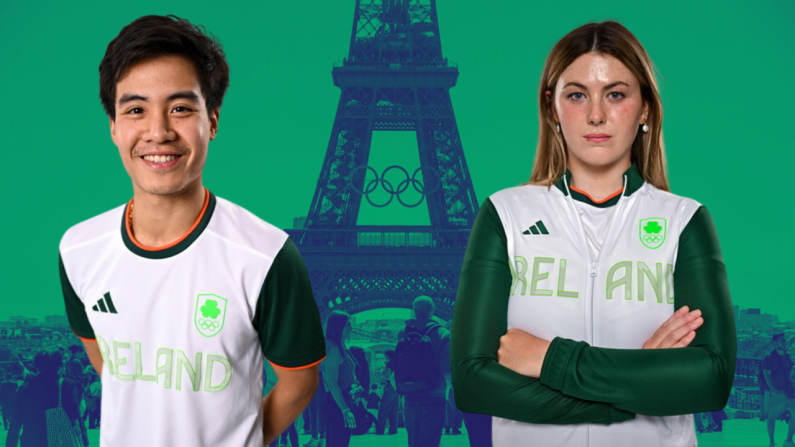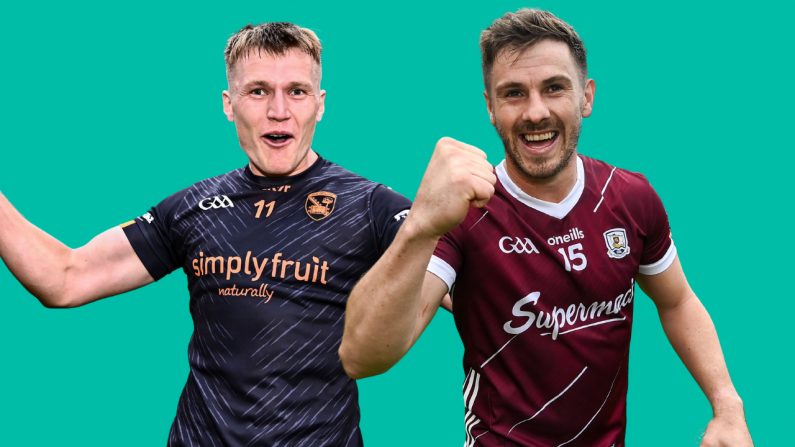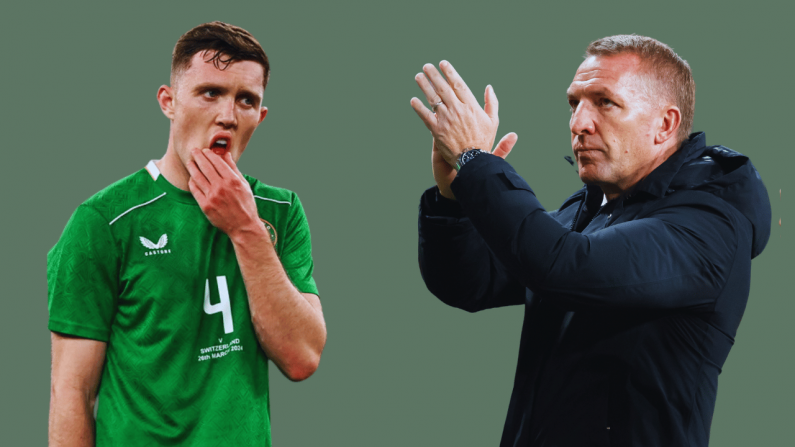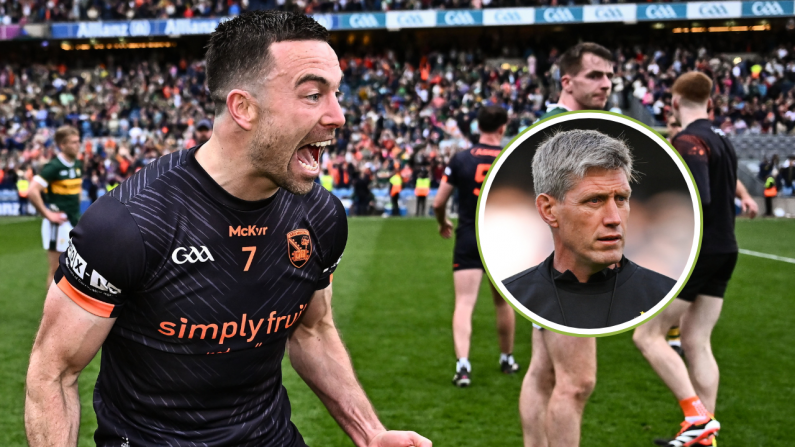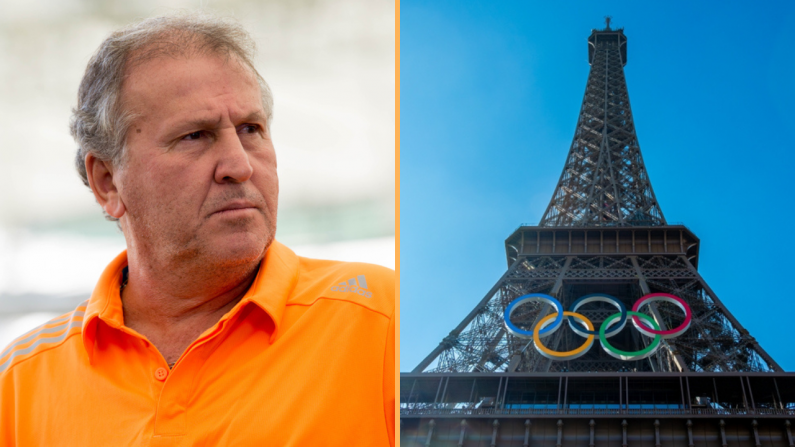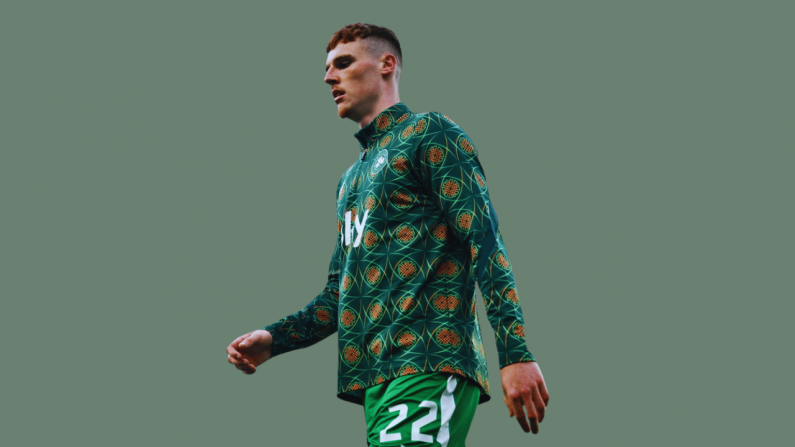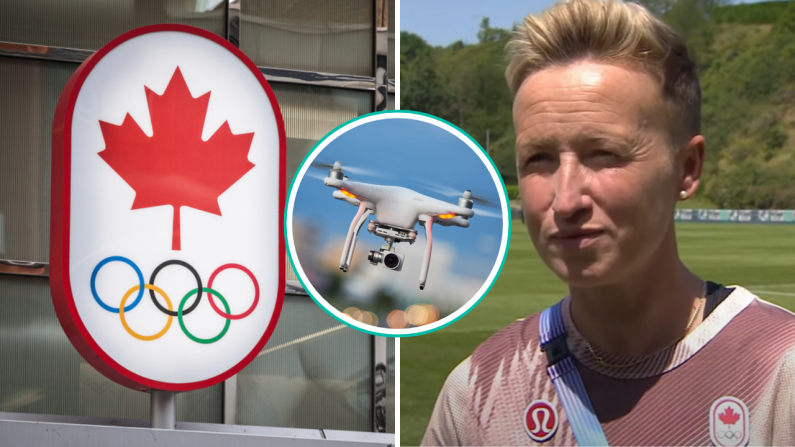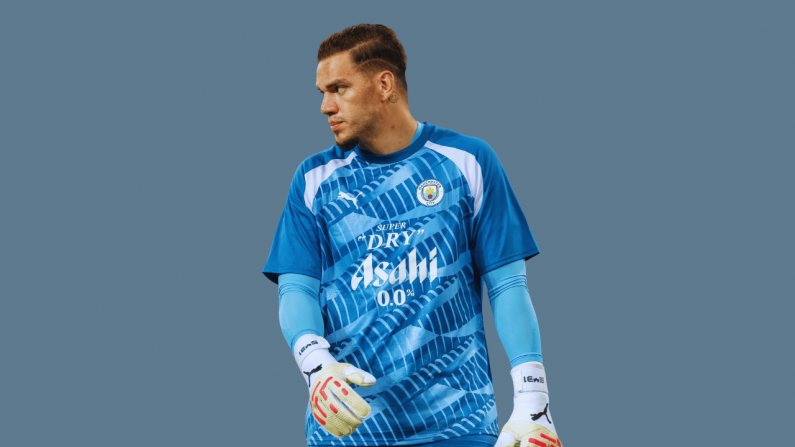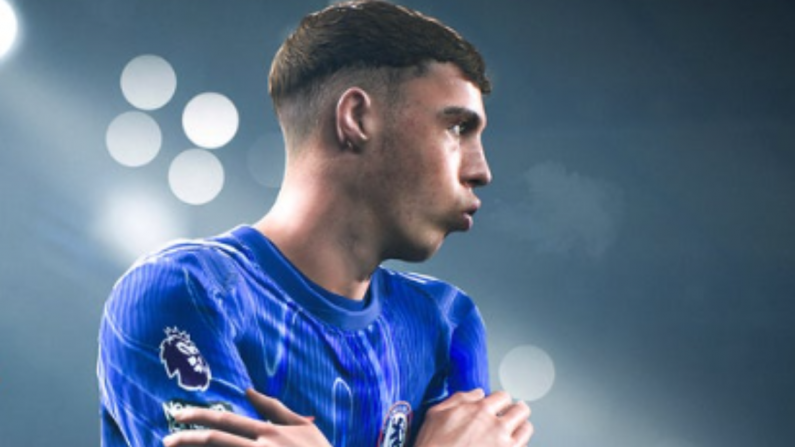Leo Varadkar has yet to really enter the sporting fray, leaving it to Shane Ross for the most part. But with Shane Lowry primed for Open glory, now could be his time.
Others before him have been less restrained. Much so. Here's a ranking of the piggyback ability of every Irish Taoiseach.
An important word here. We are NOT ranking Taoisigh based on their sporting prowess. If that were the caseJack Lynch would have sauntered to victory. No, we are ranking Irish leaders on their ability to piggyback on Irish sporting triumphs and their general determination to use sport for political ends.
13. Garret Fitzgerald
Comfortably wins the title of the least sport-inclined Taoiseach in history. His fate, in this respect, was sealed in one of the 1982 general election campaigns.
While doing a spot of campaigning in Cork, a teddy bear that had been painted red and white was pushed in his direction.
In the manner of the nineteenth century British civil servant asking the natives what garment they were wearing, Garret inquired as to to significance of the red and white colours. Was it a symbol of Polish solidarity, he asked?
While his aides held their heads in their hands and nearly wept, Garret was told "they're the Cork colours, boy!"
An economics PhD and former Irish correspondent of the Economist magazine, Fitzgerald's primary hobby was studying the train timetables on the New York underground.
12. John A Costello
Never used sport much in his capacity as Taoiseach but he was a golfing obsessive. According to biographer David McCullagh, he spent more time at Portmarnock than at Mass.
Joked that the worst thing about the Easter Rising was that it created a roadblock preventing him getting to the golf course.
11. Sean Lemass
Another golfer.
Beyond his friendship with Tom Farquharson, the Dublin goalkeeper who won the FA Cup with Cardiff City, and his obligatory appearances at All-Ireland finals, there is little discussion of Lemass and team sports.
10. Liam Cosgrave (1973-77)
Damn all reference to sport in Liam Cosgrave's career. But he did, as a 96 year old man, manage to turn up to this year's All-Ireland hurling final. Impressive.
9. John Bruton (1994-97)
https://youtu.be/qMVhWJRwny4?t=6m45s
Like most Fine Gaelers, save for their current leader, John Bruton tended to leave sport to sportspeople.
He did, however, appear on Up for the Match 1996, being interviewed by one of their roving reporters Suzanne Power in a basketball court in Simonstown.
"One of the chief supporters of Meath, he's parachuted in from Washington," was the introduction.
It was a more deferential era. The entire crowd cheered madly when Bruton was introduced. Nowadays they'd have booed.
Incidentally, his wife Finola, a prominent campaigner on social conservative issues, is from Mayo. Cue Marty Squad style jokes.
8. Eamon De Valera (1932-59 - on and off)
Who knew? The increased fashionability of rugby in Ireland in the 21st century actually corresponds with Eamon De Valera's vision for the sporting future of the country.
Dev believed every Irishman should play rugby, asserting that the game suited the Irish psyche perfectly.
There is no football game to match rugby. If all our young men played rugby not only would we beat England and Wales, but France and the whole lot of them together.
For reasons of optics, De Valera never attended a rugby match after 1913. But he remained, until the end, a devotee of the game. A former player with Rockwell College, he was fullback on the team that reached the Munster Cup Final in the early twentieth century. It has been recorded that played once for Munster in 1905 and was almost selected for the national team.
Despite his pop reputation as a backwards-looking ogre, De Valera was, in private, a stern critic of the GAA's ban on members playing 'foreign sports'.
7. Brian Cowen (2008-11)
With public anger hitting stratospheric levels during his time in charge, Cowen stayed clear of ever looking too happy in public. This broadly went for sport too.
His reaction to Ireland's Grand Slam victory in 2009 was restrained, and confined to a message of congratulations. To his credit, he didn't elbow Jackie Kyle out of the way in a quest to get his photo taken with Brian O'Driscoll and the Cup.
When it came to Offaly success, however, he found it easier to let his hair down. In his time in charge, as in our current time, Offaly success in the GAA sphere was desperately thin on the ground.
But, Offaly's success in golf was only beginning. The Taoiseach was in the gallery that day in Baltray when then amateur Shane Lowry shot to national fame. In his own understated way, Cowen managed to get in the frame when Lowry hoisted the trophy aloft.
He wasn't averse to taking in the odd Premier League match. One member of the Balls team met Brian Cowen deep in the bowels of Old Trafford before Manchester United met Roy Keane's Sunderland in the Premier League.
Cowen was sinking a pint in the presence of a few aides. You knew the Irish Manchester United supporters because they kept approaching him for selfies. The locals just breezed by him, oblivious to the fact that this was an important person.
It was a period before Cowen's ascent to the top job, before the financial crisis, and consequently before he became a target for public scorn.
6. WT Cosgrave (1922-32)
The first prime minister in the history of the state rises high on the list on account of his insistence that Ireland stage the Tailteann Games in 1924.
It was, believe it or not, the biggest sporting event held in the world that year, despite the fact that this was also the year of the Olympic Games in Paris.
Ireland was flat broke after the Civil War but WT Cosgrave was determined the games go ahead.
“The purpose of the promoters of the Tailteann Games is to give a new impulse to this necessary and valuable form of national life, and to remind the Irish people, as Thomas Davis sought to remind them, that there is more, much more, in the life of a nation than politics and economics.”
It's a lesson his successors have learned.
5. Jack Lynch (1966-79 - on and off)
If this was a contest of sporting excellence, Jack Lynch would obviously sit at No. 1. But it is not.
It is a ranking of the Taoisigh based on their ability to piggyback on sporting triumph. Jack Lynch showed no special talent in this regard.
He did, however, maintain an interest in the GAA and in sport until the end.
Christy Ring died suddenly during his Lynch's final year as Taoiseach. Lynch, in Cork City on the day the news broke, was informed of his ex-teammate's passing by a young boy who shoved the Evening Echo through his car window.
Lynch delivered the graveside oration for Ring. He might have done so even had he not been Taoiseach.
Arguably, his most important contribution to sport while Taoiseach was telling Pat Spillane that he's a bollocks while an RTE camera was on him.
Pat related the tale on the Late Late Show a couple of years back.
"The night Jack Lynch retired, his last official function was to present the All-Star awards. I remember shaking Jack's hands, and the camera was on him, it was to be on the Nine O'Clock News, and Jack saying "Jaysus, Spillane, you're some bollocks."
4. Albert Reynolds (1992-94)
Albert - nicknamed the 'Longford Slasher' after firing eight ministers in his first day in the job - was only Taoiseach for just under three years.
That his spell at the summit was so short-lived may have had something to do with his talent for making political enemies (see the previous sentence).
So, while his premiership was relatively short, it nonetheless coincided with an especially glorious time for the Irish football team.
And when Big Jack dismounted from the private jet that carried the Irish team back from Windsor Park in November 1993, Albert, champagne bottle in hand and a green scarf around his neck, was the first to greet the Irish manager with a hug.
3. Enda Kenny (2011-2017)
Enda certainly found his mojo in this regard in latter years.
When Giovanni Trapattoni, an ardent Catholic like seemingly all Italian football men, announced his burning desire to climb Croagh Patrick, there was no way Enda was not going to be by his side on the journey.
There he was in those giddy months of early 2012, dressed in an Ireland jersey like an overgrown kid, climbing stick in hand, pointing out the summit to Don Giovanni.
But his primary obsession remains Mayo's quest for Sam. We must give credit to Kenny here. There seems to be no League game so unglamorous that Enda won't show up to it. He appears to have a permanent seat in whatever Castlebar's equivalent of the Royal Box is.
It seems that the latest All-Ireland final defeat has left a deep imprint on him. Always a hardcore fan, always donning a green and red tie on Mayo All-Ireland final days, he has now taken to crow-barring the curse into other discussions.
At the announcement of Ireland's Rugby World Cup bid for 2023, he saw fit to remind the audience that he knows the pain of falling at the final hurdle.
Enda Kenny on 2023 RWC bid: This is not going to be easy. We, where I come from, know what it is to fall at the last hurdle
— Brendan O'Brien (@Rackob) November 15, 2016
That's before we get to his tweet marking Ireland's historic win over New Zealand in Chicago. It's a bizarre tweet in some respects. The mathematical sequence here would imply that Mayo are due an All-Ireland win in 2065. There followed a nice back and forth with Welsh First Minister Carwyn Jones.
Chicago Cubs win after 108 years.
Ireland win after 111 years.
Mayo to win after 66 years.
Let's do it lads!#IREvNZL
— Enda Kenny (@EndaKennyTD) November 5, 2016
2. Bertie Ahern (1997-2008)
Quite simply, the top two in this list were streets ahead of the competition.
While Garret Fitzgerald spent his post-political career writing a column in the serious pages of the Irish Times (that column was little read apparently. Lore has it that the same copy was accidentally printed twice in successive weeks and not one reader wrote in to complain), Bertie instead chose to embark upon a career writing a sports column for the Sunday World.
As one of Charlie's lieutenants, Bertie took account of the blowback his late mentor received for getting too close in Stephen Roche in 1987, and so generally steered clear of actually painting himself as some sort of co-winner of various prizes.
But his obsession with sport was overwhelming. On September 12th, 2001, when the newspapers were broadly preoccupied with events elsewhere, the Irish Times printed two letters from readers lamenting Bertie's punditry work on the Premiership.
David Fagan of Talbot Street wrote:
Now that Bertie sees fit to give us his expert view on English soccer, perhaps we can have his view on why local professional soccer has been in decline for 40 years... Could it be the fact that opinion formers (like himself) accord the National League no value, thus giving it an 'uncool' status while vocally supporting English clubs? Can he confirm he is more expert in the field of Irish English politics... I don't want Ireland to be invading the Malvinas because Bertie gets confused.
John Clarke of Tullamore wrote that Bertie was clearly afflicted with 'Grovelling Paddy syndrome' which was expressed in "his ridiculous and pathetic attachment to the fortunes of a British soccer club - Manchester United."
In the 'Bertie' documentary, screened in early 2009, the man himself talked about his youthful attachment to Drumcondra FC, aka, the Drums.
Alas, his interest in the League of Ireland couldn't survive that grand old club's disappearance from the scene. In 1994, while still Minister for Finance, he was asked to write a few hundred words for the St. Patrick's Athletic match-day programme.
He chose to write, not about the League of Ireland, but instead about the reasons for his support of Manchester United.
He wrote: "The current United team deserve great credit for the manner in which they have won the League for the past two years. Like the Dubs of the 70s, United have set a new standard of exhilarating attacking play that other teams have had to follow in order to challenge their supremacy.
What about the Dubs?
In 2004, RTE gave us one of the most notorious and reviled half hours of programming ever seen. Namely, the Hanging with Hector episode featuring Bertie Ahern.
Amazingly, given the turn things later in the decade, Bertie comes off better than the host of the show. Hector spent the bulk of the programme bellyaching that he wasn't seated beside Taoiseach for the Dublin-Westmeath Leinster championship match. If nothing else, the show might delight those nostalgic for the days when Dublin didn't win every game in Leinster.
Indeed, the entire show is peppered with folksy references to hardy Meath full back lines and what not.
That's before we get to his grand dream, his burning ambition. The stadium which was to be his monument. The non-existent temple which was to be known as Stadium Ireland but which is not universally called 'The Bertie Bowl'.
Surveying the wreckage of the Irish economy and with the IMF now overseeing Irish public spending, Bertie Ahern told an interviewer in 2011 that his biggest regret was his failure to build a "national infrastructural stadium."
1. Charlie Haughey (1979-92 - on and off)
An undisputed giant in this field and an inspiration for future Taoisigh.
Watching Charlie Haughey step atop the victors podium on the Champs Elysees at the 1987 Tour de France, one knows that one is seeing a master at work. In the matter of politico-sporting piggybacking, he remains the gold standard by which all future politicians should be judged.
In 1988, the Irish Times' longstanding rugby writer Edmund 'Ned' Van Esbeck bemoaned the fact that Haughey, "who rarely misses an All-Ireland final at Croke Park and recently attended an Ireland-Australia compromise rules game", had never bothered showing up to a soccer or rugby match in Lansdowne Road.
To this day, it's not clear that Haughey ever attended an Irish rugby match (surely, he showed up to the Gordon Hamilton game in '91?). In fairness, the Irish rugby team offered little attraction to politicians wishing to bask in reflected glory during the later years of Haughey's premiership from 1987-92. So, his failure to offer much support to the rugby boys might not be attributable to his famous contempt for "D4 West Brits" and northern unionists.
But it is very clear that he did clamber aboard the Irish soccer bandwagon. Even if it took him until the quarter-final of Italia 90 to do so.
In addition to everything else that was going on, Ireland held the EU Presidency in the summer of 1990.
The unification of Germany was up for debate and Charlie Haughey was holding a press briefing for the international media, running them through the finer points of the negotiations when Tommie Gorman came bounding into the room.
"What are you doing?" Haughey asked. Gorman breathlessly informed him that the Romanians had missed a kick and demanded they stick on the TV. They turned it on just in time just in time to see O'Leary hit the net.
Newly-committed soccer fan Haughey danced a jig in the corridor of Dublin Castle for the benefit of the news crews. He would drop everything and head out to Rome for the quarter-final.
After the 1-0 loss, the FAI suits tried to convince Jack to do a lap of honour the running track with the tricolour. He didn't much feel like it, but Charlie had no such qualms.
He then arrived down to the Irish dressing room, flanked by old pal and cabinet minister Brian Lenihan (Senior).
Niall Quinn, in a story which may be apocryphal and is surely embellished, described the scene when the Taoiseach said his piece to the Irish heroes of 1990.
If Quinny's story bears any relationship to the truth, then Haughey, a big nationalist and an even bigger egotist, can't have been too pleased by the reaction of the lads with English accents.
Those of us brought up in Ireland stood there in amazement and he made a speech about the sporting sons of Ireland. It was hair-standing-on-the-back-of-neck stuff. Tony Cascarino was behind me and said loudly 'Who the f**k is that?' ruining the moment.
I thought, Oh my God, and said 'that's the Taoiseach' and Andy Townsend was beside him and said really loudly again 'Who is it, Cas?' and he said 'I don't know, Quinny said he owns a tea shop'.
We cannot confirm whether Townsend or Cascarino have brushed up on their knowledge of the Irish offices of state in the intervening years.
*Cascarino has confirmed to us that this exchange did indeed take place but that he and Townsend were messing at the time and did know who Haughey was.
Soon we will have a 14th member of the list. Not sure if Leo and Simon have it in them to oust Charlie any time soon though.


